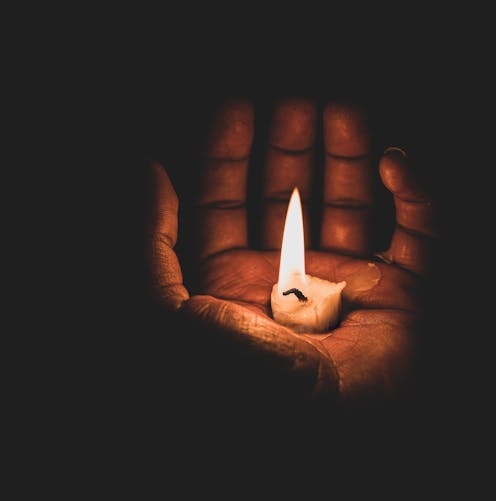Life is short, and for good reason – here's how to make it more meaningful
- Written by Dean Rickles, Professor, University of Sydney

In 1605 the great Spanish novelist, Miguel de Cervantes Saavedra, wrote, through the mouthpiece of Don Quixote of La Mancha, that it is
the part of a wise man to keep himself today for tomorrow, and not to venture all his eggs in one basket.
But just how wise is this? I argue not at all.
It is the height of folly “to keep oneself for tomorrow” if one desires a meaningful existence, and simply leads to an un-lived life, filled with nothing but unrealised possibilities and what-might-have-beens. A wise person should surely live a real life?
Yet, for secular society at least, we appear to have taken this quixotic wisdom very much to heart. It seemingly forms the basis of financial portfolio optimisation where it manifests as the dictum that one should “diversify one’s portfolio” and not risk too much in one specific investment. On the surface this might appear to be a good, rational way to live: treat life like an economic problem (where this approach obviously has merit in terms of investment returns) and, above all else, minimise losses. The less we choose, the less we risk. After all, commitment often involves leaving the other options behind. It is risk heavy.
In the psycho-therapeutic context (borrowing from Carl Gustav Jung’s theories), those that live as if time were unlimited, keeping all options open, are referred as Puer Aeterni: eternal children. It is precisely by grounding oneself in reality, committing to it, choosing some course of action, being decisive, and so on, that one grows up.
Puers live a merely provisional life, since it is essentially an exercise in reality avoidance. This state of being is no better than reading about tasting wine or hearing music, or watching someone else have an orgasm on a screen, and expecting that to be a sufficient proxy for experiencing such things in reality.
Jung was writing almost a century ago. Today, it is as though a peculiar force is driving us further and further from reality. With COVID-19 we found ourselves locked away, teaching and meeting over Zoom, which has persisted beyond the lockdowns. With the advent of “the Metaverse”, humanity faces the possibility of unplugging even more from the real world and from real life.
Of course, technology can be a wonderful tool, and I’m not dismissing the utility of Zoom and virtual reality (which, of course, might allow a more immersive version of Zooming), but we must be constantly on guard against succumbing to attempts to undermine our ability and our existential need to make choices that matter.
A society of people unwilling to commit to action that will affect the world for which they are responsible is tantamount to a society of children, whatever their chronological age. Indeed, the psychoanalyst Dan Kiley once recast this puer complex in terms of J. M. Barrie’s archetypal character Peter Pan, the boy who never grew up, whose motto is
Stars are beautiful, but they may not take part in anything, they must just look on forever.
The puer might have “ecstasies innumerable” but find themselves, to quote Barrie again, “looking through the window at the one joy from which [they] must be for ever barred.” And so it is with those unable to commit to some specific future, person, job, etc. They cannot be said to properly live or to engage properly with the world and its inhabitants. They are already living in a kind of simulation.
Jung called this state “the provisional life.” Likewise, much earlier, the stoic philosopher Lucius Annaeus Seneca, in his book On the Shortness of Life, refers to a “tossing about” rather than a “journey,” which forges a path through the space of possibilities with intention, design, and often courage. Life is not merely existing. It is not just being there through the lapse of time.
Read more: What would Seneca say? Six Stoic tips for surviving lockdown
Commitment as a sacrifice
But perhaps we shouldn’t be quite so dismissive of the avoidance of commitment, as Kiley, Jung, and Seneca were. The world is indeed full of possibilities. But a world full of possibility is also full of uncertainty (the basis of the risk mentioned earlier). And from this uncertainty comes the anxiety of having to face the risking of decisions.
What is the ultimate source of this anxiety? I suspect it is the latent knowledge that each decisive action taken is simultaneously a kind of death; as much a destructive act as a creative or productive one, killing off alternatives to allow just a single one to live.





